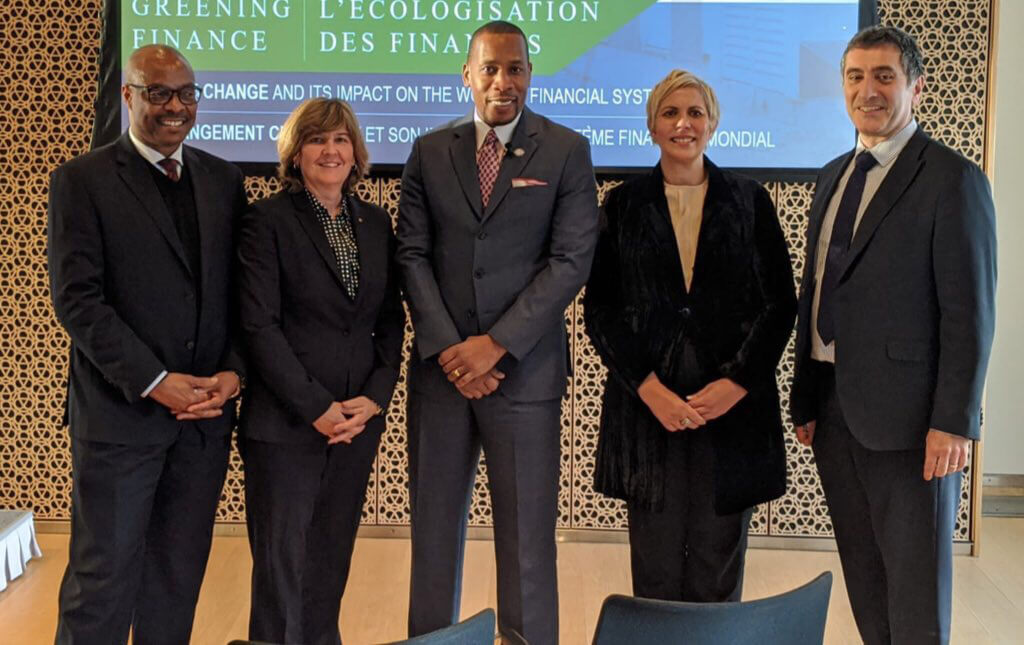Antigua
Antigua and Barbuda Prime Minister, Gaston Browne said it would be “consequentially economically” to restrict travel from the United States and the United Kingdom.
The Caribbean island recently recorded the first confirmed case of the dreaded coronavirus and during a radio interview last week, Browne said, “if you close these two windows then clearly, it would have a significant amount of dislocation.
“If we stop the flights from outside of the UK and US, I would believe that practically all the hotels would have to close. It would mean sending home all the hotel workers; government’s revenue would reduce significantly; we would not be able to manage our payroll and other obligations,” he said.
He said there is also the concern that restricting travel would significantly affect food and security.
Browne suggested that the practical thing to do, at this point, was to manage the risk by strengthening capabilities at all ports of entry for these particular visitors, as well as returning nationals and purchasing specialized equipment to ensure that local authorities could test for the virus, thereby eliminating the need to send samples to Trinidad and Tobago.
Barbados
The Barbados-based Caribbean Institute for Meteorology and Hydrology (CIMH) says that while some parts of the Caribbean, such as the Leeward Islands, experiences above normal rainfall in January, there are concerns over short and long term drought by the end of the dry season in May over much of the region.
In its latest Caribbean Drought Bulletin, CIMH said that of particular concern is the southern portion of the eastern chain into Guyana, where both short and long-term drought are likely to evolve.
It said monitoring water reserves and enhancing water conservation measures are recommended, noting that long-term drought is evolving in Antigua, Barbados, north-western half of Belize, Cayman Islands, parts of coastal and interior Guyana, St. Kitts, the Windward Islands – Dominica, Grenada, St. Lucia and St. Vincent and the Grenadines.
Caribbean
Heads of government in the Organization of Eastern Caribbean States (OECS) and officials from the Eastern Caribbean Currency Union (ECCU) recently convened a meeting to review the possible effects of the spread of coronavirus (COVID-19).
According to the Governor of the Eastern Central Bank (ECCB) Timothy Antoine, growth in the region could slow to 1.4 percent for the year. “Under the best-case scenario (containment) real GDP growth for the ECCU for 2020 will slow to 2.1 percent- down from an initial estimate of 3.3 percent; under a moderate case scenario (containment by end of summer), ECCU real GDP growth is projected to decelerate to 1.5 percent, and in the worst-case scenario of 1.9 percent is projected,” a statement from the IECS said.
It added the decline in economic growth is consistent with the projections of a 20 percent decline in tourism in the region- if a total shutdown of the economies is avoided.
The OECS noted that it could consider a shutdown of the industry since international flights and cruise ships, based on reports, were the original sources of infections.
The heads of government agreed to keep airports and seaports open to enable trade, especially goods and the movement of OECS nationals.
Grenada
Grenada has added the United States to a list of countries on the country’s travel advisory which seeks to stop the coronavirus from entering the Spice Island.
There is presently one coronavirus as up to last week in Grenada.
In its updated Travel Advisory, the government says Grenadian nationals and residents will be allowed to enter the country but must be self-quarantined for 14 days upon arrival in Grenada.
A statement from the government said effective March 20, at midnight, “if you not a Grenadian national and the last 14 days you have been to Iran, South Korea, China or anywhere in Europe (including the United Kingdom), you will be refused entry into the country.”
“Effective midnight on March 21, the USA is added to this advisory as per all the stipulations outlined,” it added.
The government says the action is necessary as widespread respiratory illness caused by the COVID-19 have been reported in Iran, South Korea, China and USA and Europe.
Several Caribbean countries have tightened up on visitor arrivals with travel restrictions in a bid to combat the spread of COVID-19.
Jamaica
Jamaica’s Carnival celebrations have been postponed by six months to October as a safety measure against the spread of the novel Coronavirus (COVID-19) in the island.
Chairman of the Carnival In Jamaica Stakeholders Committee, Kamal Bankay made the announcement after the numbers of COVID-19 cases in the island are increasing.
Bankay said the road parade, originally scheduled for Sunday, April, 19 has been moved to Sunday, Oct. 25.
Carnival In Jamaica organizers recently expressed optimism that the event would still go on as scheduled despite a case being confirmed in Jamaica, but appear to have a change of heart with the number of confirmed cases having soared in the norther part of the country and one death so far.
Trinidad
The shortfall of revenue could be as high as TT$5 billion from the collapse in international commodity prices, as well as he possible economic fallout from the precautions taken to mitigate the COVID-19 pandemic.
This was revealed by Trinidad and Tobago Finance Minister Colm Imbert at a recent media briefing following an emergency meeting at the Diplomatic Center, Port of Spain
“We have two problems we are facing right now- a collapse of commodity prices and the business slowdown that will naturally come from the precautions taken to deal with the covid-19 pandemic,” he said.
Two weeks ago Imbert announced that the government would revise its price estimated for oil from US$60 per barrel to US$40 per barrel and natural gas from US$3 to US$1.80 per mmbtu.
He had estimated the revenue shortfall would be around TT$3.5 billion.
Imbert said the government would have to consider alternative means of financing the budget deficit, which would be projected at TT$10 billion, including borrowing, dipping into the Heritage and Stabilization Fund and selling state assets.
Virgin Islands
The government of the Virgin Islands has announced the immediate closure of the Tortola cruise port, allowing no cruise ships to call on the territory for a 30-day period in an effort to protect the territory from potential contamination of the coronavirus. At present there are no confirmed cases on the island.
A statement from the Caribbean Tourism Organization (CTO) also said the number of international ports of entry into the British Virgin Islands (BVI) have been limited to facilitate the effective screening of passengers.
It said the entry of passengers and crew members, who have traveled to, from or through COVID-19 affected countries as specified in a list of countries of special interest within a period of 14 days or less, will not be allowed.
The CTO said any mass gathering or festivals that were scheduled to take place in the BVI during next month will be postponed until further notice.
— compiled by Azad Ali






















